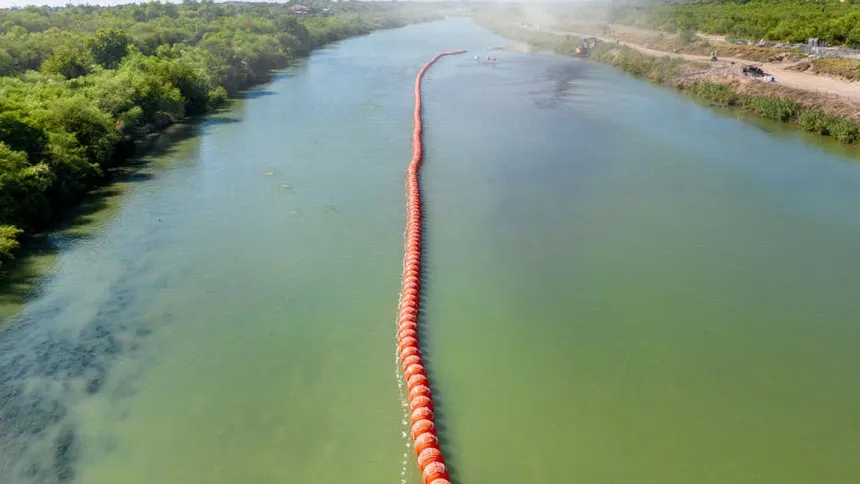Two dozen Republican lawmakers have filed an amicus brief in federal court supporting Texas’ construction of buoy barriers in the Rio Grande to block illegal immigration.
The legal filing, led by U.S. Rep. Jodey Arrington (R-TX), came in response to the U.S. Department of Justice asking the federal courts to block the state from placing additional structures in the Rio Grande River.
The DOJ claims the barriers present multiple problems. Most notably, the agency asserts that the barriers violate the Rivers and Harbors Act. They also claim the barriers pose an immediate threat to navigation and safety, and it causes harm to relations between the U.S. and Mexico.
Arrington said he led the brief because President Joe Biden has failed to secure the border, forcing the state to take action.
“Sovereign states do not have to be passive victims of Biden’s border crisis and a failed federal government. Article IV Section 4 and Article I Section 10 of the Constitution grant Governor Abbott the explicit right to defend the border and protect Texans, and the construction of the buoy barrier is completely within his constitutional power and authority,” said Arrington. “I’m proud to lead this Amicus Brief in support of the Governor as he stands his ground on the firm foundation of the U.S. Constitution and his sovereign right to secure the southern border and keep Texans safe.”
The congressmen’s brief takes aim at the DOJ’s argument that the barriers violate the Rivers and Harbors Act, saying the government needs to produce evidence that the Rio Grande River is navigable.
When Congress passed the Rivers and Harbors Act, it carefully chose language designed to balance its desire to protect our rivers and harbors for commercial navigation with the limitations placed on its authority under the Commerce Clause. It did not intend to grant federal agencies unchecked power to regulate every ditch and stream that once upon a time could have carried a boat. The federal government’s view in this case would turn the Act into a one-way ratchet, where federal jurisdiction may always expand, but never contract with changes to the river. This approach misreads the statute and, if taken seriously, likely exceeds Congress’s authority under the Commerce Clause.
Notably, the lawmakers—which include 15 from Texas—argue the claim the DOJ makes asserting the Rio Grande River is navigable water stems from an insubstantial finding from 1947.
In 1947, the U.S. Coast Guard found the entire river to be navigable water, resulting in the federal government having full authority to regulate the river under the Commerce Clause. However, the lawmakers contend that while the finding was accurate then, it doesn’t mean it rings true now.
“More importantly, a 1947 observation cannot be the perpetual metric for federal jurisdiction over rivers in Texas. As any Texan knows, rivers change,” reads the brief. “Indeed, hundreds of miles of the Rio Grande that were deemed navigable in the 1947 Coast Guard finding relied on by the government are now dry.”
Unless the court grants a preliminary injunction, Texas’ marine barriers will remain in place until the court rules on the matter.
Gov. Abbott has not responded to a request for comment.
No ads. No paywalls. No government grants. No corporate masters.
Just real news for real Texans.
Support Texas Scorecard to keep it that way!





